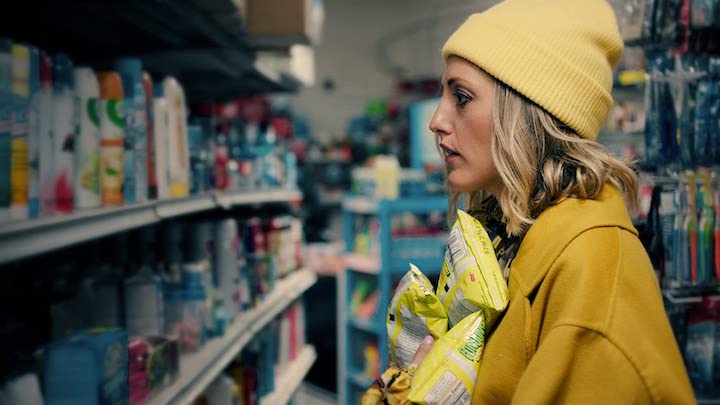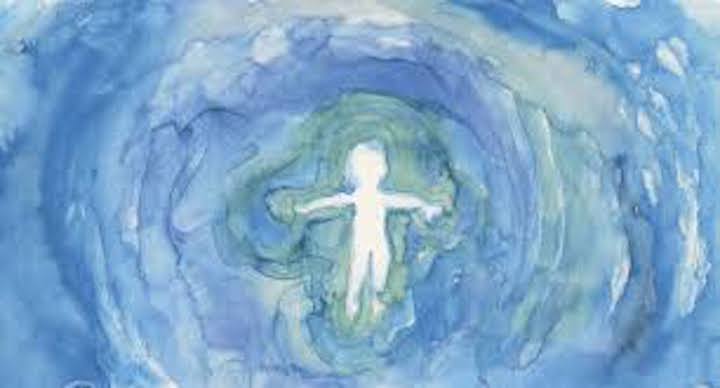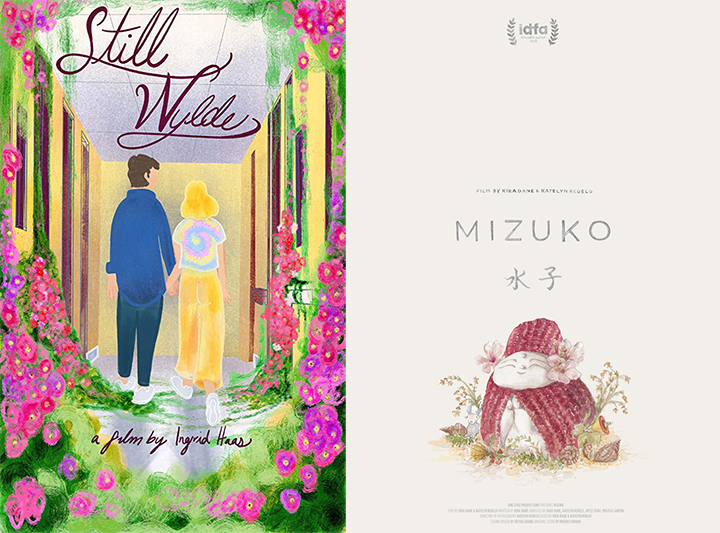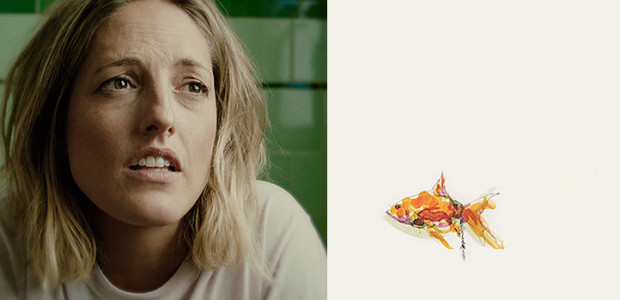In my previous reviews of shorts that would’ve played at SXSW 2020, there was the thematic link of social media but told through the lens of two very different tones and genres. In this pairing of short films, both STILL WYLDE and MIZUKO deal with pregnancies that don’t happen, but for very different reasons and thus encompassing hosts of different emotions. Furthermore, one is a live-action dramedy while the latter is a mixed media using live action shots, stop-motion papercraft, and animation done in the style of watercolor paintings. They are both written and directed by women and, even with their multiple differences, share another similarity by being expertly made films.

STILL WYLDE, written/directed/starring Ingrid Haas, concerns a couple in their late thirties that seem already on the bubble when Gertie (Haas) discovers that she is pregnant. Her boyfriend, Sam (Barry Rothbart), does everything he can to be supportive and be a part of this adventure as they go forward with this unexpected expectancy. Gertie experiences some complications and soon the pair are facing a whole new set of emotional challenges and trying their best to navigate them.
Haas’ dramedy short isn’t realistic in terms of look or dialogue—this isn’t a case of a documentary style or mumblecore exploration of these circumstances. But there is a sincerity to the characters, their words, and their dynamics that comes across as deeply genuine. Sam and Gertie are late Gen X/early Millennial white people trying to be woke and say the Right things that are as inclusive, validating, and empathetic as possible. But it’s a dark situation that usually only lurks in the back of people’s minds as worst case scenarios, so the duo stumble while trying to figure out what they should be doing. And that’s part of the brilliance in STILL WYLDE—there is no should. However Gertie is reacting to this turn of events is how she “should” be acting, because there is no handbook for this or guide to handling all of these feelings of anger, sadness, betrayal, guilt, and more.
Which all makes STILL WYLDE sound like the biggest buzzkill ever—but it’s not! Yes, it deals with heavy stuff in a direct way, but it also has a lot of great banter, jokes, and interplay amongst the couple as well as ancillary characters. It’s funny…until it isn’t, but it never feels like an emotional twist (not a manipulative or incongruent one, anyways). Haas’ script makes it feel like all part of the same story that has laughter and tears and yelling, while her direction keeps the audience engaged. The characters of STILL WYLDE are all clearly flawed in various ways, but never in a manner that is off-putting; instead it’s that sincerity of trying to map out something that wasn’t planned, twice over, and experiencing all of those emotional swings that come with this uncharted territory.

MIZUKO, directed by Katelyn Rebelo and Kira Dane (from a script by Dane), is an incredible blending of genres and mediums that displays an astounding amount of ingenuity, vision, and talent. The documentary is able to weave first person experiences, cross-cultural traditions, and an overview of Buddhist cosmology—while using re-enactment footage, animation (made to look like watercolor paintings), stop-motion animation of paper crafts and threads, and more.
In all honesty, MIZUKO shouldn’t work. It goes from New York on 9/11 to a bay in Okinawa, Japan to an uncomfortable medical facility to an introduction of Japanese buddhist customs all while changing appearances and mediums and zig-zagging through time…in the span of 14 minutes. That should be a mess—but Rebelo and Dane not only pull it off, but do so with such artistic splendor that it is an incredible and unique experience.
Based on Dane’s own experiences, the basic outline of MIZUKO is thus (from the SXSW program description):
In Japanese, there’s a specific word for an unborn life. Mizuko, which means “water child,” is used to refer to both miscarried and aborted pregnancies. In addition to this word, there’s a ritual for grief that allows women to metaphorically return their water children to the sea.
It is a beautiful journey equal parts heartwrenching for how difficult the abortion was for Dane but also oddly uplifting due to the Buddhist beliefs that vessels come and go from the same source. It’s that melancholic beauty that is apparent in the animations, or the cute Jizo statues people put up for their Mizuko that look like adorable little dumplings but represent a lost child or a future that never came to be. One of Buddhism’s greatest strengths is the embrace of the duality and contradictory of things—one of the foundational Four Noble Truths is that life is suffering, but it also teaches about reclaiming mastery and finding joy amidst that pain.
This is perfectly reflected in Rebelo and Dane’s moving short film. MIZUKO could easily be a dour exercise (and some parts are dark) or it could be a silver lining Pollyanna movie that acts like the darkness is all for a greater good and so it’s okay. Instead, it’s both; or, more accurately, neither. The existential imagery of souls being just waves returning to the ocean was actually just recently highlighted in the series finale of The Good Place (spoilers in this video), so it’s a fairly current and topical expansion on an idea for many (even when it’s based on centuries old beliefs). MIZUKO is a completely singular experience that is unlike anything else out there in the best of ways. Inventive visuals and daring melding of mediums, along with powerful emotional spectrum that will stay with audiences for a very long time.
STILL WYLDE and MIZUKO both look at loss in terms of pregnancy—of course in very different circumstances, genres, mediums, and manners. They are complementary in presentation and being two halves of a similar experiential coin. But Haas, Rebelo, and Dane two works are similar by being honest, thoughtful, and films that show how a short runtime can contain a giant amount of emotions.

Tags: Barry Rothbart, Ingrid Haas, Katelyn Rebelo, Kira Dane, Mizuko, short films, Still Wylde, SXSW 2020


No Comments